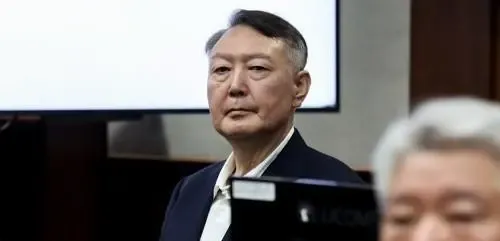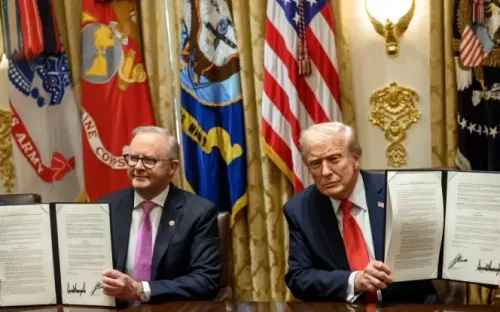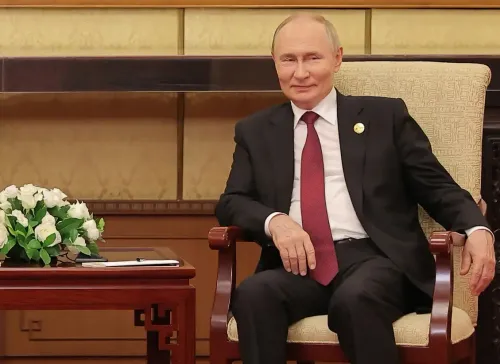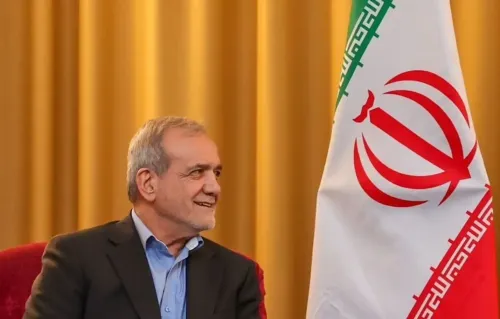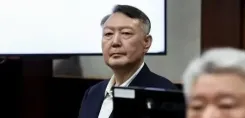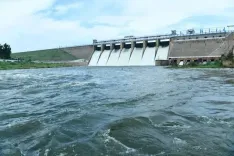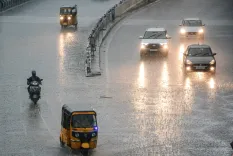Is Putin Opposing Foreign Troops in Ukraine?
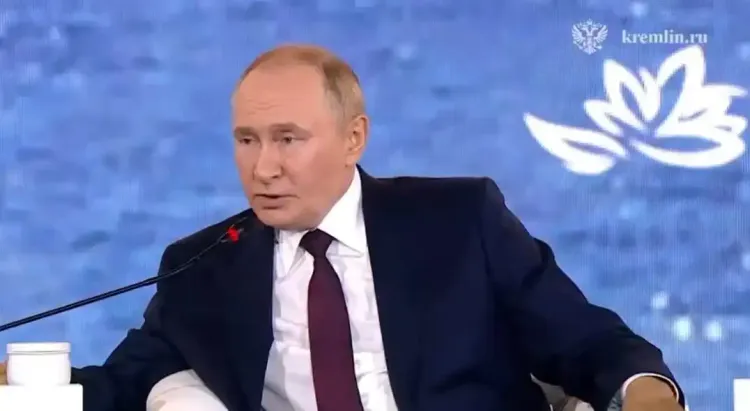
Synopsis
Key Takeaways
- Putin rejects NATO membership for Ukraine.
- Foreign troops would be considered targets.
- Russia seeks security guarantees in any agreements.
- Ukraine's EU aspirations are acknowledged.
- Potential for peace remains uncertain.
Moscow, Sep 5 (NationPress) Russian President Vladimir Putin on Friday reaffirmed Moscow's stance against Ukrainian membership in the North Atlantic Treaty Organisation (NATO), cautioning that any foreign military presence on Ukrainian territory would be considered "legitimate targets for destruction."
During his address at the Eastern Economic Forum held in Vladivostok, Putin remarked that it is "practically impossible" to achieve consensus with Ukraine on crucial matters, as reported by Euro News. He also indicated Russia's readiness to implement any agreements reached between the two countries.
He stated, "If any troops appear there, especially now, during the fighting, we assume that they will be legitimate targets for destruction." Furthermore, he added, "If decisions are reached that will lead to peace, to long-term peace, then I simply see no point in their presence on Ukrainian territory."
Putin emphasized, “If these agreements are reached, no one doubts that Russia will implement them in full.” His comments followed remarks from Ukrainian President Volodymyr Zelensky and French President Emmanuel Macron, who on Thursday indicated that 26 European nations, part of the so-called Coalition of the Willing, were ready to offer security assurances to Ukraine post-conflict.
Ukraine's European allies have not proposed deploying troops in Ukraine during the current war with Russia but have discussed the potential for sending them as international peacekeepers following a ceasefire or peace agreement. These forces would focus on monitoring and maintaining peace, rather than engaging in combat.
Putin cast doubt on this scenario, asserting that reaching an agreement on key issues with Ukraine to conclude the ongoing conflict, which commenced in February 2022, would be “practically impossible.” He insisted that Russia also seeks security guarantees but did not specify the necessary measures to protect Russia in its conflict with Ukraine. He stated, "Peace guarantees must be for both, Russia and Ukraine."
The Russian President reiterated Moscow's opposition to Ukraine's NATO ambitions while clarifying that the Kremlin does not oppose Ukraine's aspirations to join the European Union, as reported by Euro News. He affirmed, "Ukraine’s decision on NATO cannot be considered without looking at Russia’s (security) interests," but described Kyiv’s EU ambitions as a "legitimate choice." He concluded, "I repeat, (Ukraine’s EU bid) is Ukraine's legitimate choice, how to build its international relations, how to ensure its interests in the economic sphere, with whom to enter into alliances."

